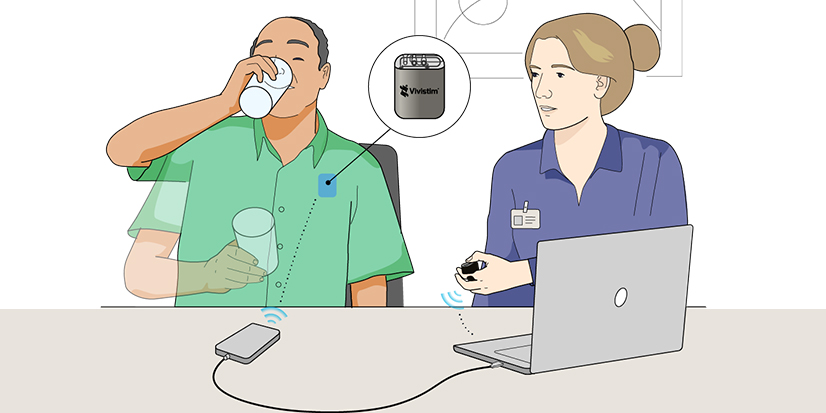The Vagus Nerve: Your Secret Weapon in Fighting Stress
- Category: Home Health, Personal Care, Resources
- Posted On:
- Written By: Allied Services Integrated Health

The current Coronavirus pandemic has impacted all of our lives and for many of us caused increased amounts of stress in various areas of lives. Stress can affect your physical and mental health, so finding ways to manage should be a priority. There are techniques we can use to help manage stress, boost healing, decrease pain, and regulate our nervous system for a decreased stress response.
Have you ever heard of “fight or flight?” When we experience sudden, high stress, we activate our fight or flight response, getting the body ready to either flee the scene or fight. In our everyday experience of stress, there is no place to run or hide, and the stressful situation is not one that can easily be fought off. Most of us are not meeting tigers in the street!
During periods of chronic high stress, the body stays in high gear, with stress hormones like adrenaline and cortisol coursing through the body. This creates wear and tear on the body and mind, and over time can create a multitude of health problems such as chronic pain, anxiety, mood swings, gut inflammation and so many more.
The good news is that our bodies contain their own superpower that can assist with decreasing our fight or flight response.
The vagus nerve system acts to counterbalance the fight or flight system and can trigger a relaxation response in our body. It is one of the cranial nerves that connect the brain to the body. The vagus nerve is a major part of how our bodies and brains function; without it, our bodies wouldn’t be able to do basic tasks, and by stimulating it we can receive powerful health benefits.
One of the main ways that you can stimulate the healthy function of the vagus nerve is through deep, slow belly breathing. You can learn to use breathing exercises to shift your focus away from stress or pain. The human mind processes one thing at a time. If you focus on the rhythm of your breathing, you're not focused on the stressor.
The moment we anticipate stress in any form, most of us tend to stop breathing and hold our breath. Breath holding activates the fight/flight/freeze response; it tends to increase the sensation of pain, stiffness, anxiety, or fear. To practice deep breathing inhale through your nose and exhale through your mouth remember to:
- Breathe more slowly (aim for six breaths per minute).
- Breathe more deeply, from the belly. Think about expanding your abdomen and widening your rib cage as you inhale.
- Exhale longer than you inhale. It’s the exhale that triggers the relaxation response.
Additional techniques for stimulating the vagus nerve include:
- Loud gargling with water or loud singing activates our vocal cords which in turn stimulates the vagus nerve.
- Foot massage: gentle or firm touch can assist in stimulation the vagus nerve.
- Cold water face immersion: immerse your forehead eyes and at least 2/3 of both cheeks into cold water. This elicits the vagus nerve, decreasing heart rate, stimulating the intestines and turns on the immune system
- Eating fiber stimulates vagus impulses to the brain slowing the gut movements and making us feel fuller after meals
- Laughter: having a good laugh lifts your mood, boosts your immune system and stimulates the vagus nerve.
We don’t always have to let stressful situations negatively our minds and bodies. WE can stimulate our vagus nerve to send a message to our bodies that it’s time to relax and de-stress, which leads to long-term improvements in mood, pain management, wellbeing and resilience.
About the Author: Megan Horeis, DPT, PT, WCS, treats pediatric and adult patients at Allied Services Scranton Luger Rehab Center. Her primary focus the past 20 years has been treating women and men with pelvic floor disorders and diagnoses associated with the pelvic floor.


